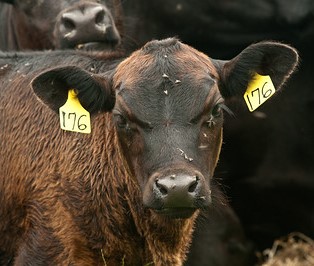The European Commission's (EC's) Health Emergency Preparedness and Response Authority (HERA) will give €8 million (about $8.6 million US) to the Global Antibiotic Research & Development Partnership (GARDP) and the World Health Organization (WHO) to tackle the growing threat of antimicrobial resistance (AMR) over the next 3 years.
GARDP announced the collaboration late last week after the three organizations held their first steering committee meeting in Geneva. The partnership will work to ensure sustainable access to treatments for resistant infections, promote responsible antibiotic use, improve affordability, and prioritize research into new antibiotics.
Under the EU4Health programme, the three organizations will work to boost capacities at the national, regional, and global levels to increase preparedness for and response to health emergencies, the release said.
GARDP will study neonatal sepsis, gonorrhea
As part of this work, GARDP will use its €5 million ($5.4 million) allotment for late-stage clinical development, regulatory actions, and improved access to antibiotics for serious bacterial, sexually transmitted, and children's infections.
In the news release, GARDP Executive Director Manica Balasegaram, MBBS, called AMR "one of the top ten global health threats facing the planet. The HERA funding will allow GARDP to carry out the first-ever clinical trial evaluating new combination treatments for neonatal sepsis, and advance the development of a new treatment for gonorrhoea and another new treatment for serious bacterial infections in adults and children."
The HERA funding will allow GARDP to carry out the first-ever clinical trial evaluating new combination treatments for neonatal sepsis.
GARDP is a not-for-profit foundation that develops new treatments for the most pressing drug-resistant infections. The WHO and the Drugs for Neglected Diseases Initiative founded GARDP in 2018.
The WHO will use its €2 million ($2.2 million) allocation to support research and development, and the remaining €1 million ($1.1 million) will go to the WHO-GARDP's SECURE project to accelerate access to essential antibiotics.
Pierre Delsaux, MA, who heads HERA, said the partnership will allow the collaborators "to progress the development of new medical countermeasures for tackling antimicrobial resistance, one of the three priority cross-border health threats identified by HERA." HERA was established in September 2021 as an EC directorate-general in response to the COVID-19 pandemic.

 An international COVID-19 registry shows an increased rate of clotting in heart attack patients with COVID-19, according to data recently presented at the Society for Cardiovascular Angiography & Interventions (SCAI) 2023 Scientific Sessions.
An international COVID-19 registry shows an increased rate of clotting in heart attack patients with COVID-19, according to data recently presented at the Society for Cardiovascular Angiography & Interventions (SCAI) 2023 Scientific Sessions.











